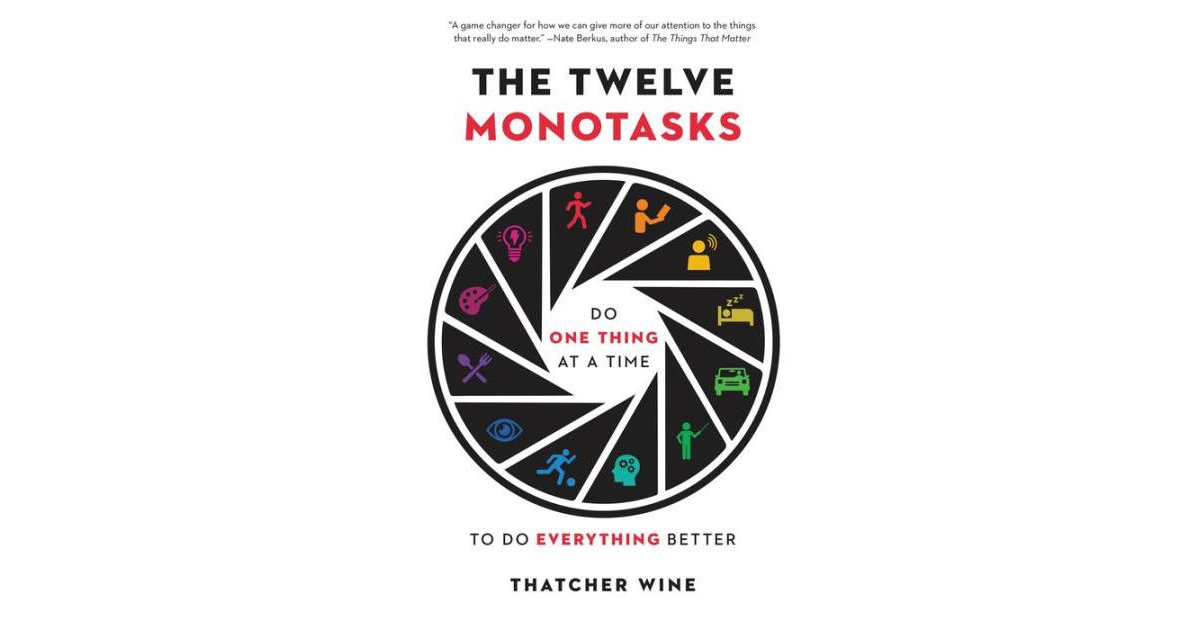Reclaim your attention, productivity, and happiness with this captivating, informative and beautifully written book by learning how to keep your focus on one familiar task at a time Nate Berkus . Modern life is full of to-do lists, all-consuming technology and the constant pressure to be doing and striving for more. What if you could train your brain to focus on one thing at a time. What if the secret to better productivity involved doing less, not more. Drawing on research in psychology, neuroscience, and mindfulness, The twelve monotasks provides a clear and accessible plan for life in the twenty-first century. Practice resisting distractions and building focus by doing the things you already do like reading, sleeping, eating, and listening with renewed attention. For example, the next time you go for a walk, don't try to run an errand or squeeze in a phone call, but instead, notice the cool breeze on your face and the plants and birds that may cross your path. Immerse yourself in the activity and let time melt away, even if you're only actually out for 20 minutes. Notice how much clearer your head feels when you return home. This is the magic of monotasking. With monotasking you will -become more productive, produce higher quality work, reduce stress and increase happiness.









